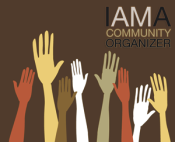One of the reasons that we have made so little progress in our ability to talk openly about issues involving skin color is that the topic is far more complex than the language we have to describe it. And much of our language is anachronistic, based on and reminding us of a time when we were far more polarized than we are now. Lacking language to express the subtleties and complexities of the topic, we make broad stroke generalizations that are endlessly debated.
Take the word "racist", for example. If a person gets along well with co-workers of other skin colors, and hires employees without regard to skin color but, nonetheless, doesn't want his daughter to enter a bi-chromatic marriage, is that person a "racist?" If so, does that mean the person should not be permitted to make hiring and firing decisions and engage in supervision with respect to workers of other skin colors?
Rather than call this person a "racist", wouldn't it be more precise, fair and constructive to say that this individual has ideation and emotion that are aroused by skin color with respect to his daughter's marital partner? Calling this person a "racist" is like calling someone who is afraid of spiders a "coward." It's a gross generalization that does not point the way toward a solution, but simply causes defensiveness that poses a barrier to solutions.
If a person has difficult emotions with respect to the skin color of his future daughter-in-law, it's possible to imagine him even seeking therapy in order to maintain his relationship with his son or daughter. But, if the person has been branded a "racist" or a "coward", it's hard to imagine that becoming the beginning of a therapeutic process. And yet if the person does not receive therapeutic help, there is a very real possibility that his relationship with his son or daughter will be seriously impaired.
Consider these alternatives, to see which one is more constructive:
Therapist: What has brought you to my office?
Client: I have difficult feelings about my daughter marrying a Black man, but she's determined to do it.
Therapist: Many people have these feelings, but I think it's something we can work on successfully.Compare that to:
Therapist: What has brought you to my office?
Client: I am a racist coward.
Therapist: You seem to have terribly low self-esteem because you globalize negative feelings about yourself instead of seeing realistically where you are doing well and where you need help.
Does it seem absurd that someone should seek psychotherapeutic help to deal with the fears associated with his son or daughter marrying someone of a different skin color? If so, maybe you can understand that patients with color-aroused ideation, emotion and behavior, like patients needing psychological help generally, are suffering an immense stigma and are not receiving the help that they need, because offering them psychological help strikes many of us as absurd.
In the absence of professional perspectives, the tendency to generalization, demonization and the resulting stigma are fundamental reasons why we are treading our wheels with respect to color-aroused ideation, emotion and behavior.
We think we are helping to solve a societal problem when we call out people as "racists". In fact, we are only making it less likely that they will receive appropriate and compassionate screening, diagnosis and treatment for color-aroused difficulties.



No comments:
Post a Comment